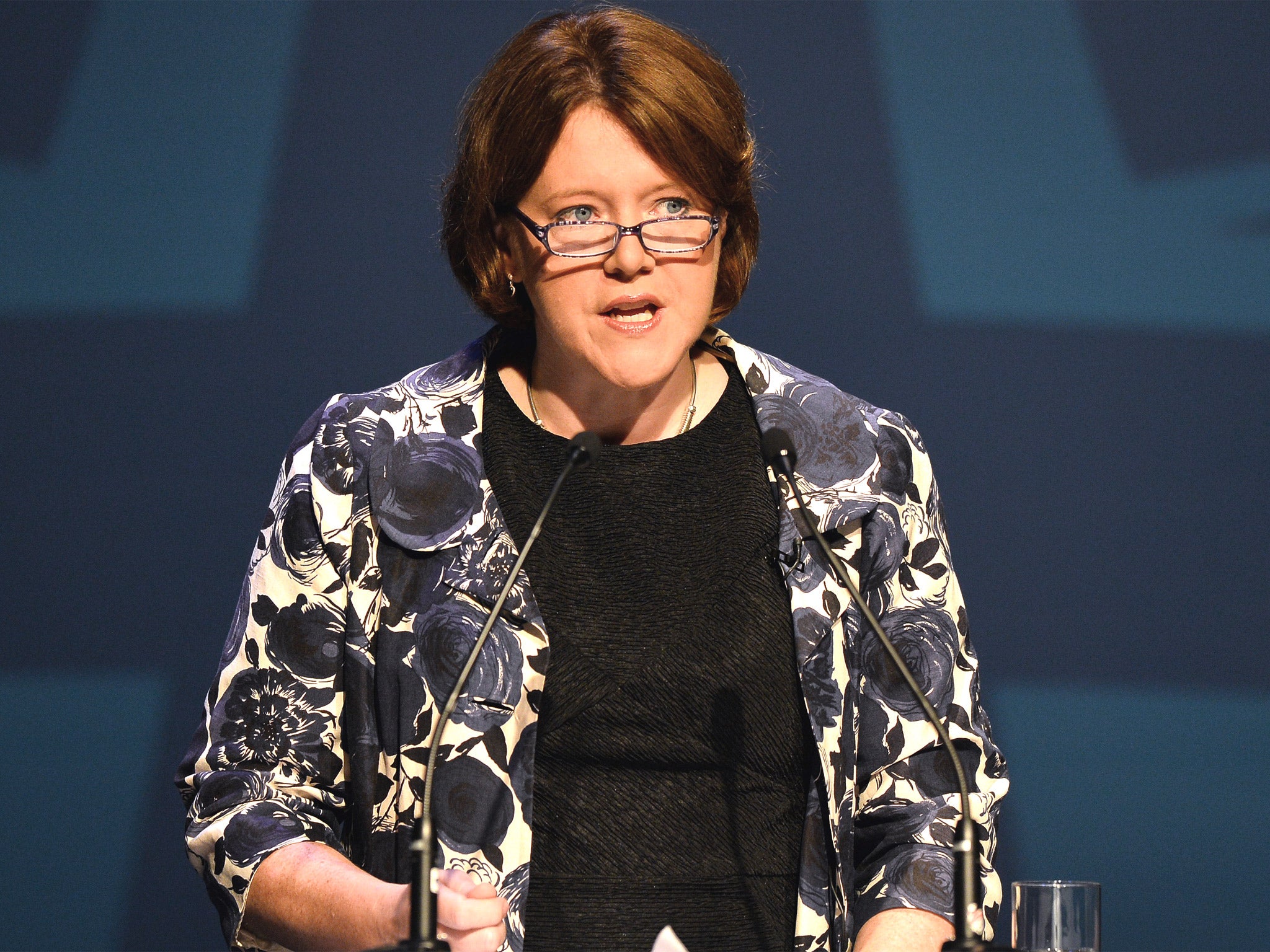Independent Scotland will have to leave the BBC, says Culture Secretary Maria Miller
Latest warning shot across the bows of the 'Yes' campaign

Your support helps us to tell the story
From reproductive rights to climate change to Big Tech, The Independent is on the ground when the story is developing. Whether it's investigating the financials of Elon Musk's pro-Trump PAC or producing our latest documentary, 'The A Word', which shines a light on the American women fighting for reproductive rights, we know how important it is to parse out the facts from the messaging.
At such a critical moment in US history, we need reporters on the ground. Your donation allows us to keep sending journalists to speak to both sides of the story.
The Independent is trusted by Americans across the entire political spectrum. And unlike many other quality news outlets, we choose not to lock Americans out of our reporting and analysis with paywalls. We believe quality journalism should be available to everyone, paid for by those who can afford it.
Your support makes all the difference.Scotland would be forced to leave the BBC if it voted for independence, the Culture Secretary has claimed, raising the prospect that viewers north of the border may lose automatic access to the corporation’s programming.
In another Westminster warning shot across the bows of the “Yes” campaign, Maria Miller hinted that an independent Scotland would cease to be part of the broadcaster. Answering questions after her speech at the Oxford Media Conference, Ms Miller said: “We have to think what the vote is about. It’s about whether or not Scotland wants to remain part of the UK.
“If the vote is no, they don’t want to do that,” she continued, “then it’s a vote to leave the institutions of the UK and the BBC is one of those institutions”. The people of Scotland vote in a referendum on independence on 18 September.
The minister’s confrontational stance comes after the Scottish National Party (SNP) laid out its own plans for post-independence broadcasting last year. In its policy document “Scotland’s Future – Your Guide to an Independent Scotland”, First Minister Alex Salmond said that, while a Scottish Broadcasting Service (SBS) would be created out of the staff and assets of BBC Scotland, it would pursue a formal joint venture with the BBC that would allow Scots access to all current programming, including BBC1, BBC2 and national radio stations.
The SNP says the joint venture agreement would mirror BBC deals to broadcast content in the Republic of Ireland, the Netherlands and Switzerland. The television licence fee would not be raised for Scottish citizens, under Mr Salmond’s plan.
Currently, BBC aims for about 8.6 per cent of eligible original programming to come from BBC Scotland. Licence fee revenue from Scotland generates around £320m. The SNP believes that figure is more than enough to allow a Scottish broadcaster to flourish. The debate about the future of the BBC after independence echoes the recent war of words between Edinburgh and London about whether Scotland would be allowed to remain in the pound after a Yes vote.
Ms Miller went on to talk about how BBC Director General Tony Hall had started sorting out BBC governance, which she wants finalised before negotiations about the charter renewal start. “The last charter renewal went on for far too long. We need to make sure it isn’t engaged in the political fray. It has to rise about that,” she said.
Lord Hall called on the licence fee to be extended to households who do not use a television set, but watch BBC programmes using the online on-demand service iPlayer.
Big switch: A Scottish BBC?
The SNP would increase opportunities for Scottish producers and programme makers. It plans to offer the same access to BBC programming as is in place with no extra cost. The Scottish Broadcasting Service will be founded on the staff and assets of BBC Scotland. It will be a joint venture with the BBC to maintain the service in Scotland as it is, in return for programmes.
It plans to take the Scottish licence fee revenue of £320m, Scotland’s share of BBC commercial ventures – which could be worth up to £19m a year – and the £12m the Scottish government puts aside for Gaelic broadcasting. The SBS would be independent of government and impartial.
Nick Clark
Join our commenting forum
Join thought-provoking conversations, follow other Independent readers and see their replies
Comments